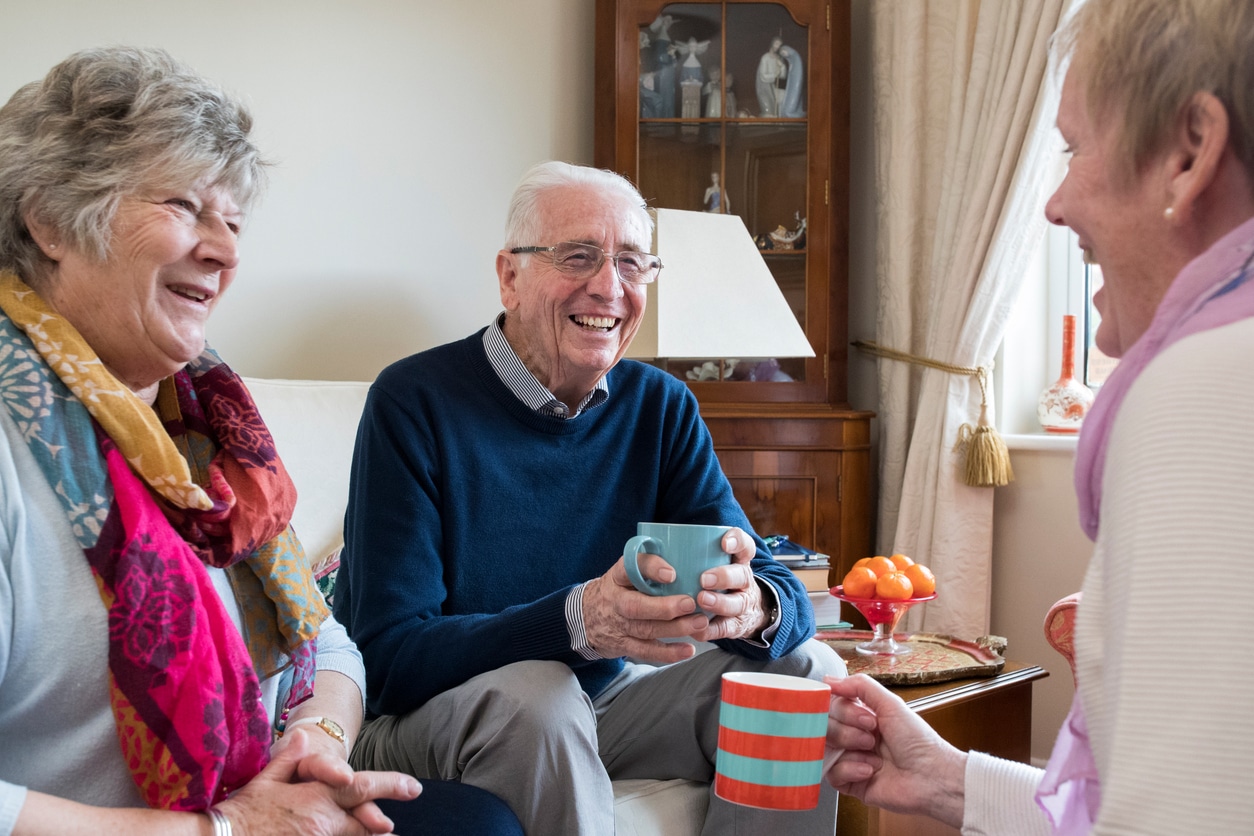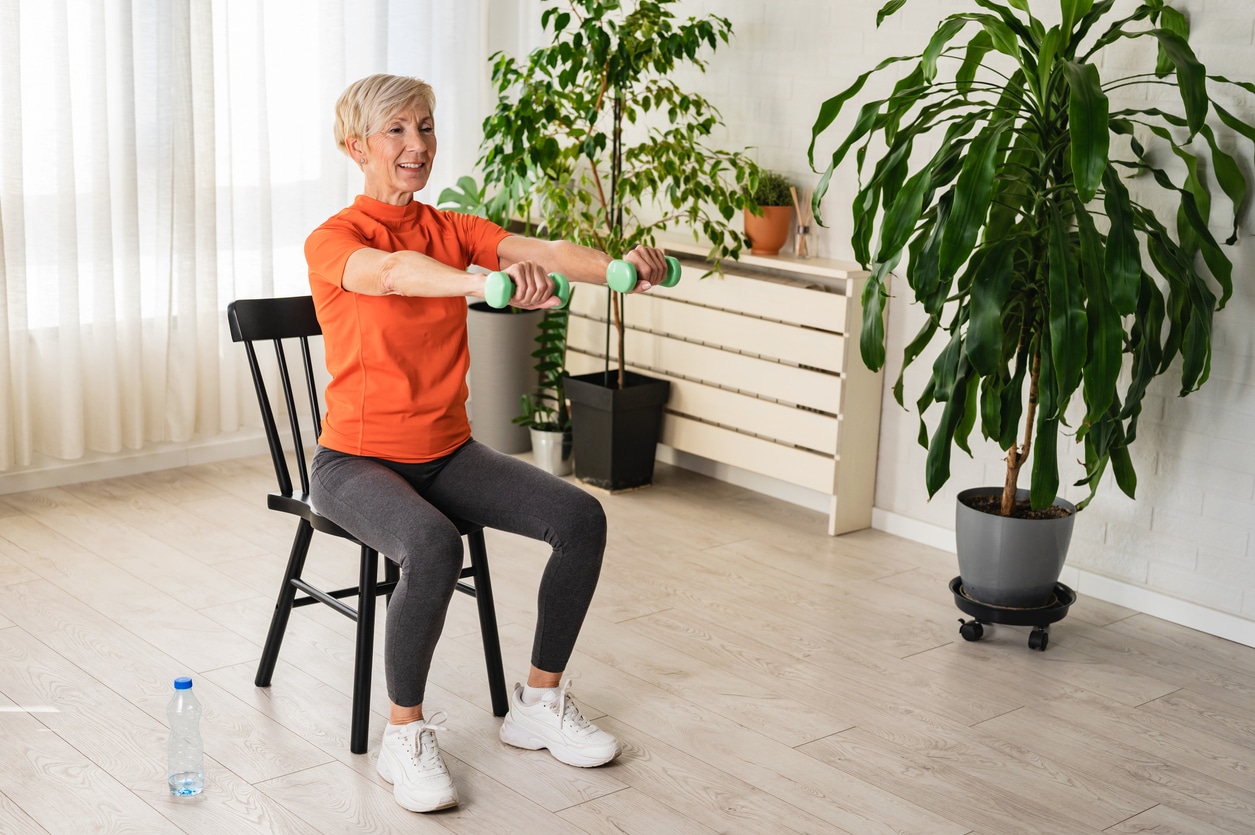The Importance of Connection
Aging brings many challenges, and loneliness is among the most significant. As we grow older, families often move away, partners may pass on, and long-time friends become harder to reach.
For seniors aging at home, loneliness can feel overwhelming. Without regular social interaction, it can lead to poor health, depression, and even more severe issues.
Many seniors hesitate to reach out for fear of being a burden. If you know an older adult living alone, there are ways to help them stay socially connected and combat loneliness.
Why Social Interaction Matters for Seniors
Even small moments of connection can have a profound impact on seniors’ well-being.
Mental Health Benefits
Social interaction plays a key role in supporting mental health. Engaging with others helps seniors feel seen, heard, and valued. It reduces feelings of isolation and can alleviate stress, anxiety, and depression.
Spending time with loved ones or participating in social activities offers a boost of positivity. Sharing stories, enjoying laughter, and reminiscing can lift spirits and provide a sense of belonging.
In addition, social engagement can improve cognitive health. Activities that involve conversation, problem-solving, or learning new skills help keep the brain sharp and active, reducing the risk of cognitive decline or memory-related conditions.
Physical Health Benefits
Staying socially active can also promote better physical health. Activities like walking, dancing, or simply hosting a gathering can help lower blood pressure and encourage mobility.
Visits from friends or family often inspire seniors to maintain their appearance and home. Preparing for guests—cleaning, cooking, or organizing—offers light physical activity that contributes to overall well-being.
Regular socialization also encourages healthier habits. Seniors who engage with others are more likely to prepare nutritious meals, stay physically active, and adhere to medical routines, all of which contribute to long-term health.
Simple Ways to Keep Seniors Engaged
Whether you’re a family member, friend, or neighbor, there are many ways to support seniors in staying socially connected:
Video Chats
When in-person visits aren’t possible, video calls can help seniors stay in touch. These calls allow them to connect with family and friends from the comfort of their home, making it easy to share special moments or enjoy daily conversations.
Setting up a regular call, such as morning coffee chats or bedtime check-ins, gives seniors something to anticipate and enjoy.
Community Activities
Encourage participation in local senior programs. Many community centers offer activities like bingo, nature walks, dances, or fitness classes. These events provide opportunities to meet new people and foster connections.
Hobbies
Rediscovering or starting a new hobby is another excellent way to build relationships. Seniors can join book clubs, gardening groups, photography classes, or cooking workshops to connect with others who share similar interests.
Volunteering
Volunteering allows seniors to give back while forming meaningful connections. Opportunities might include helping at community festivals, local charities, or libraries. Not only does volunteering combat loneliness, but it also fosters a sense of purpose and accomplishment.
Building a Supportive Community
Creating a network of support for seniors is essential in fostering meaningful social connections. This network doesn’t have to be limited to family or close friends—it can also include neighbors, caregivers, and community groups. Encouraging seniors to participate in activities that involve teamwork or collaboration, such as gardening clubs or group exercise classes, helps build a sense of community and shared purpose.
Technology can also play a significant role in keeping seniors connected. Social media platforms, online communities, and hobby-specific forums offer endless opportunities to engage with others. With a little encouragement, seniors can use these tools to stay in touch with loved ones and meet new people who share their interests.
Local community centers are another valuable resource, offering a variety of activities designed to bring people together. From craft workshops to movie nights, these events provide a welcoming space for seniors to socialize and build relationships.
Supporting Social Engagement
Helping seniors maintain social connections improves both their mental and physical health. Even a daily phone call can brighten their day and reduce feelings of isolation.
Encourage your loved one to explore activities and engage with their community. These small efforts can have a lasting impact, enhancing their quality of life and promoting greater well-being.
By fostering connections, we not only improve seniors’ mental and physical health but also create a ripple effect of positivity that benefits their families and communities. Together, we can ensure that aging is not defined by loneliness but by connection, engagement, and joy.




